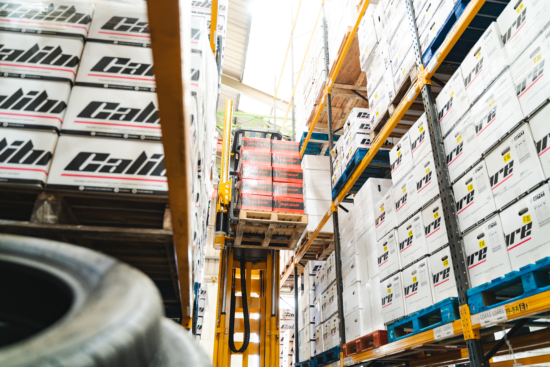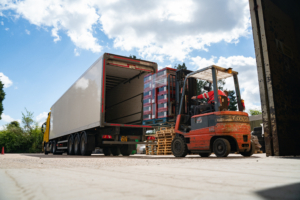How Wheelwright is coping with the new normal
 Wheelwright has invested in more efficient warehousing processes and storage methods to allow the company to carry more stock in the UK than before Covid hit (Photo: Wheelwright)
Wheelwright has invested in more efficient warehousing processes and storage methods to allow the company to carry more stock in the UK than before Covid hit (Photo: Wheelwright)
While almost every automotive business has been affected by current world events, for wheel manufacturers, a ‘perfect storm’ of global trading conditions has created a challenging trading period. Tyres & Accessories recently heard from Dave McMillan, sales director for Wheelwright, one of Britain’s longest standing manufacturer and retail names, who gave us an insight into how the company is coping with a new raft of logistical and financial travails.
“We’ve never known a period like it,” McMillan explained: ‘The primary issue is one of container costs. Up until recently, the average 40-foot container cost was around £3000, with leeway on onwards logistics and availability on all shipping with relative ease. Recently though, this has risen to around £14,000 for the same sized container, with onward travel now needing to be paid up front. Allied to this, we’ve even seen ‘gazumping’ from shipping firms taking higher bids for container slots and unloading agreed shipments to replace them with once that have placed a higher bid. It’s a very strange time.”
Suez, shipping rates and gazumping
“This has been augmented to issues further down the supply chain for almost all brands,” he continued. “The Suez incident seemingly gets blamed for so many things, but the disruption to empty container returns to original ports has significantly slowed many factory’s ability to load at the point of origin – with inevitable delays as the supply chain catches up. Add to that the fact that many ports are either closed or woefully undermanned due to Covid-induced staff shortages and you can see why we’re all having to think a little laterally at the moment.”
Once the precious containers arrive here in the UK, things are equally problematic. “The UK’s shortage of lorry drivers is well documented,’ McMillan goes on. “Although the government is making an effort to extend allowable hours – and the ease of new drivers getting the correct licencing, it does mean that the vital last step from ports to our warehouses is taking longer than we’d all like, and obviously, wherever there’s delay, there’s usually an extra tier of expense and frustration.”
Managing unavoidable price increases
Does this mean all costs being passed on to retailers – and ultimately end-customers then? “We’re doing our best to absorb these fluctuations for our dealers wherever we can. We’re taking a finely calculated margin hit to allow our brands to remain competitive in the market place and to minimise the disruption of re-pricing for retailers that take many of our lines. Hopefully this isn’t a situation that’s going to last forever, and as shipping returns to normal, it will allow our longer term strategy to play out. The most important thing at the moment is to keep our retailers in the game and as well stocked as they can be. We’ve currently got over 50k+ wheels on order and in the pipeline, so by ordering in larger quantities, we’re getting some economies of scale that we can pass on, as well as having invested in more efficient warehousing processes and storage methods to allow us to physically carry more stock in the UK than we did before Covid hit. It’s not going to be straightforward, but we’re beginning to create workable solutions to iron out the peaks and troughs in supply.”
It’s not all been doom and gloom though. In fact, Covid has created all new areas of demand for all wheel manufacturers. “It’s interesting to see the explosion of demand for some of our key lines, says McMillan. “The huge increase in demand for camper conversions and commercial vehicles in general has seen the orders for our load rated wheels hugely increase, and the lockdown period saw the need for all elements of car styling and modifying to grow exponentially. It’s interesting to see as well that the current semi-conductor and LCD crisis in the new car market that has seen supplies so severely limited at dealerships has led many car owners to look at ways of refreshing their existing cars to keep their interest. Similarly, many switched on car dealers have been adding wheels as a way of smartening showroom stock or taking a higher margin out of a used unit. It’s a market that changes on a daily basis, but there’s plenty of business out there for all of us if we roll with the changes.”


 ATEQ
ATEQ
Comments